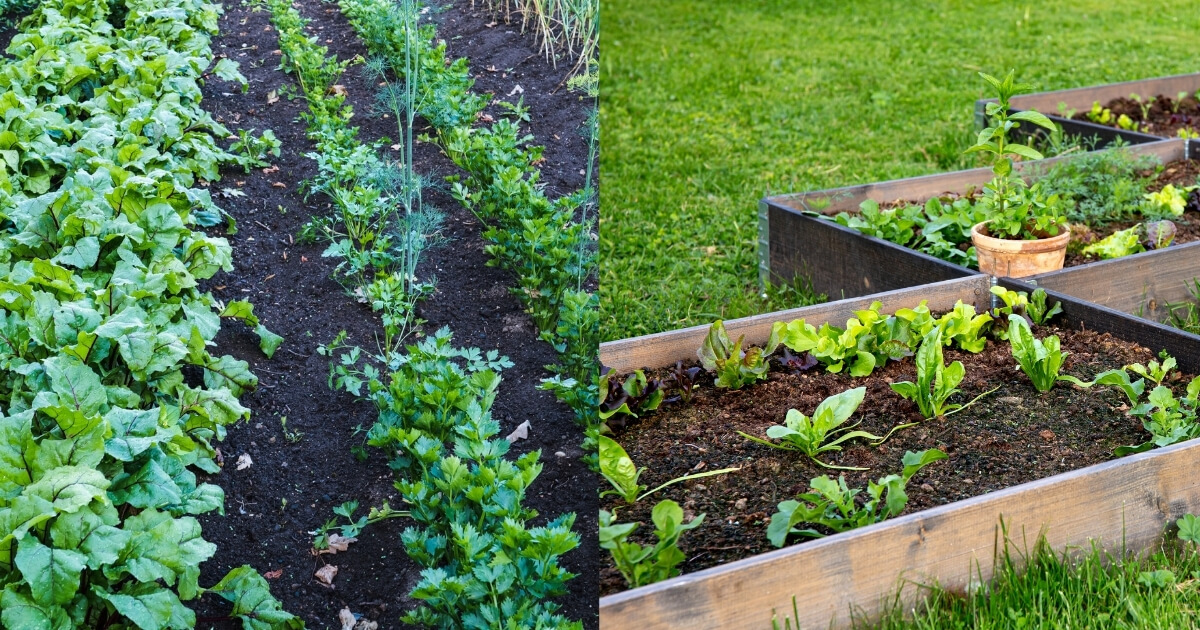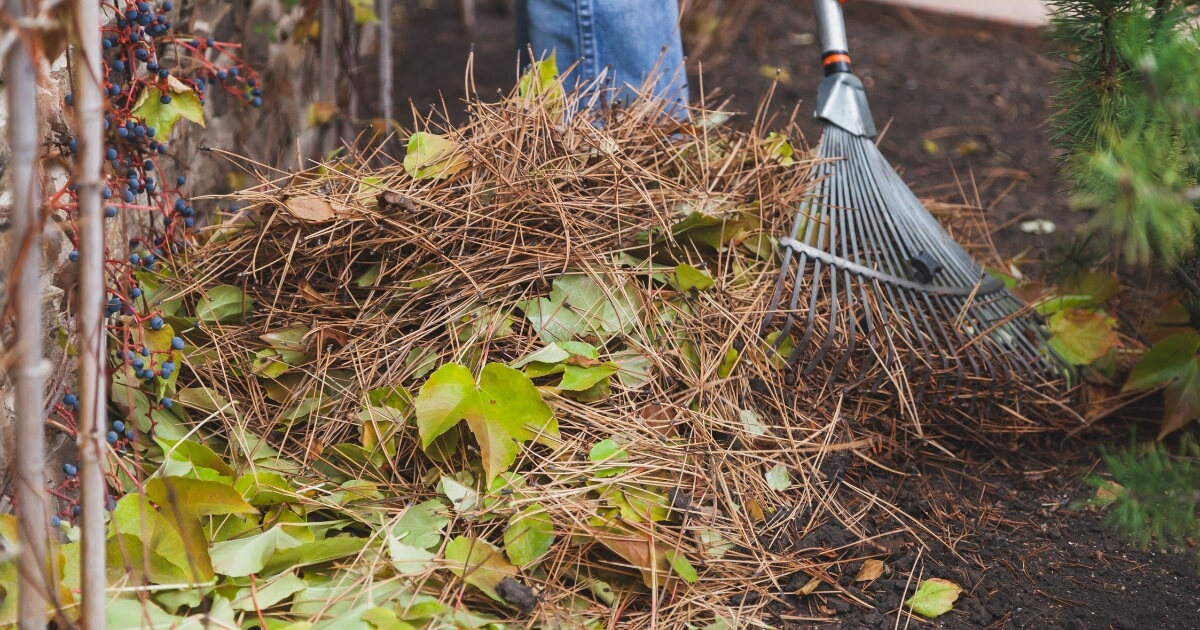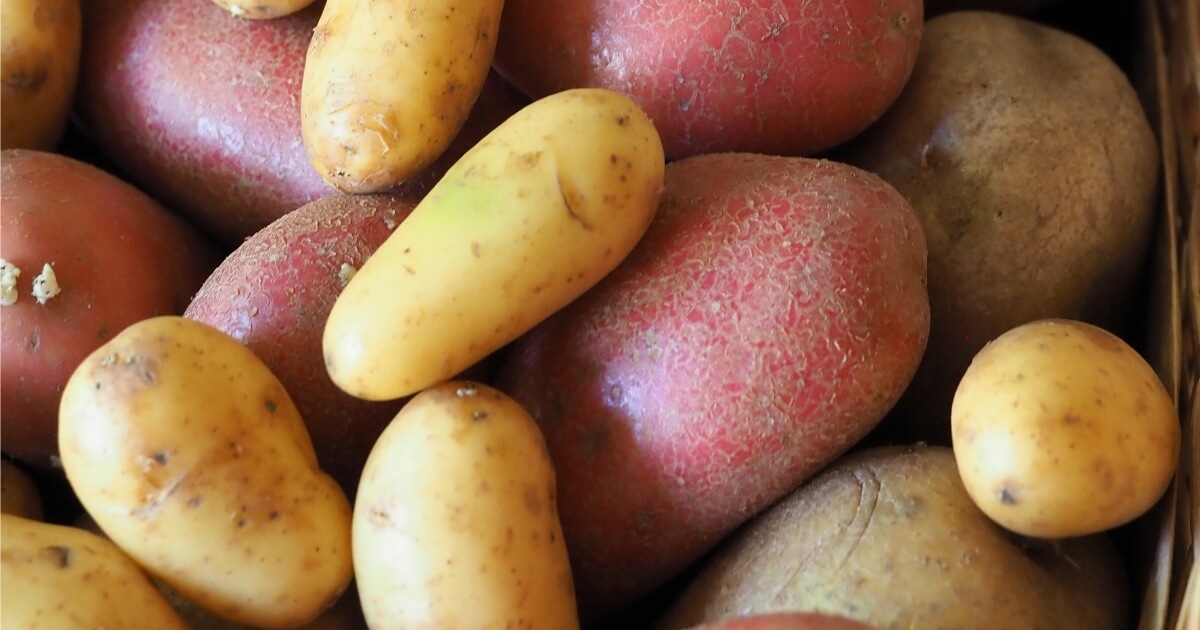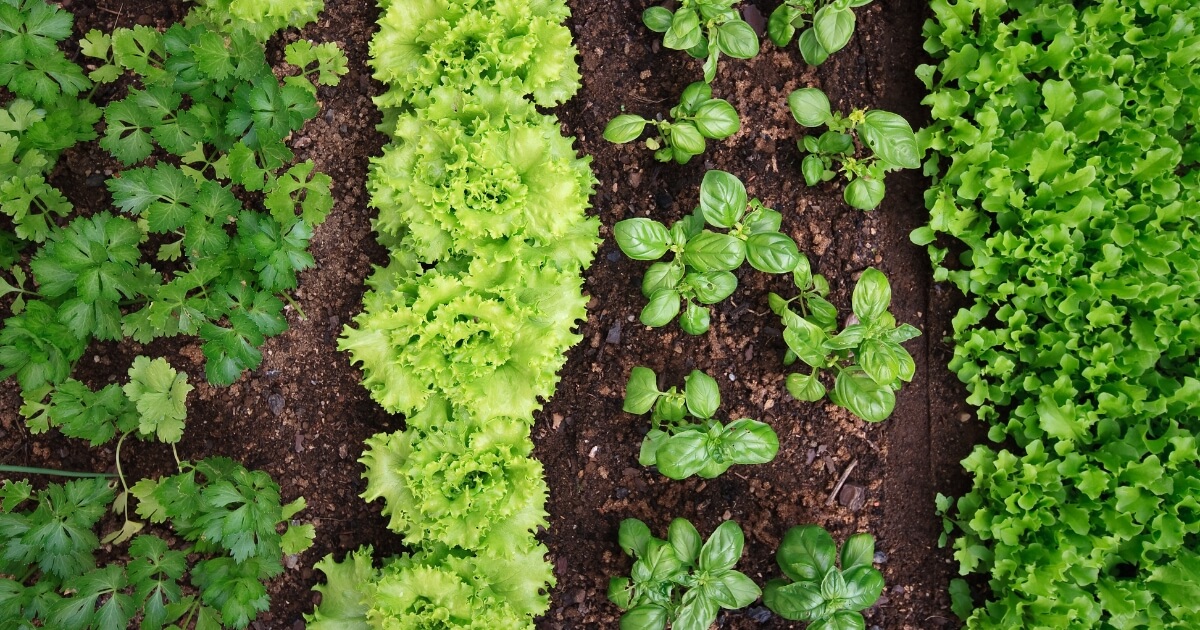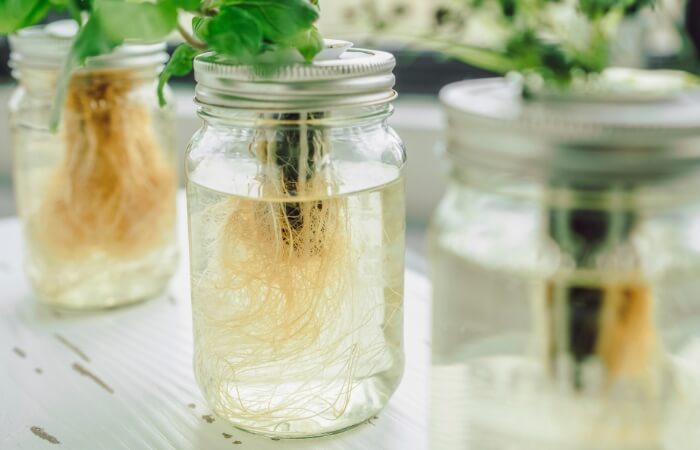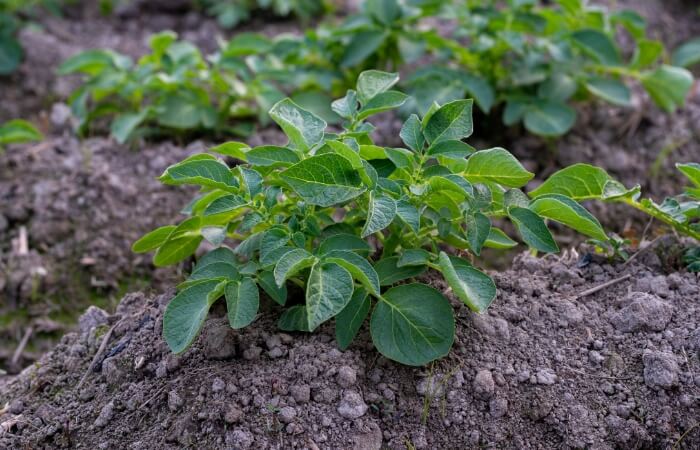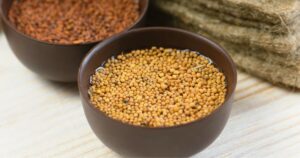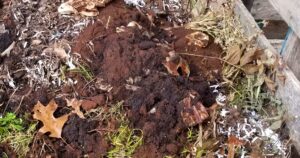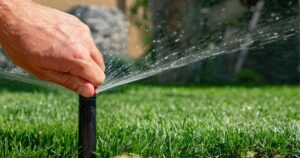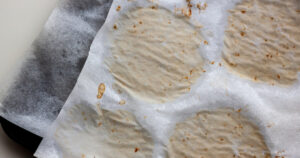Creating the ideal soil in your yard that allows your grass and plants to thrive is attractive to weeds that can quickly ruin all your hard work. So, how can you kill off the weeds yet keep your landscaping looking beautiful?
The best way to kill weeds forever is by using different types of herbicides, manual weed pulling, rethinking bird feeders, and putting up a fence to permanently stop weeds from growing and prevent them from taking over your lawn and garden.
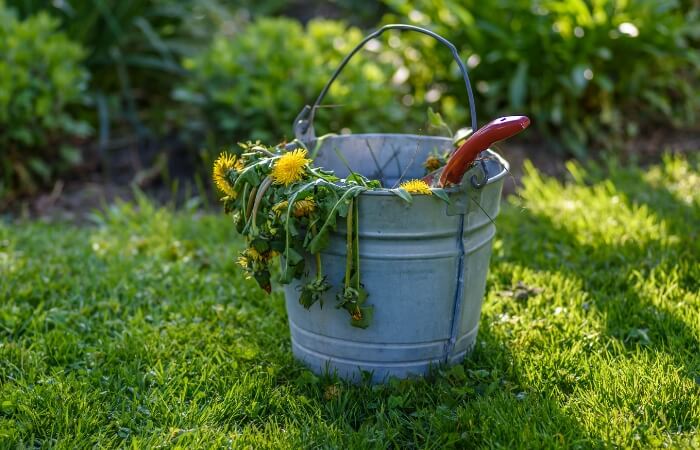
If you want to get rid of weeds forever, keep reading to learn what steps you must take to achieve a weed-free lawn and garden!
What Kills Weeds
The only way to kill weeds is to manually pull them out from the roots or use an organic or synthetic weed-kill product.
The real issue with killing weeds is that you must consistently treat the areas you want to remain weed-free, as new seeds will blow in from your neighbors lawn, fall as animal droppings, or wash into the yard after heavy rains.
These new seeds will take root and spread if you aren’t treating the soil with pre-or post-emergent herbicides regularly.
So what does kill weeds? The top methods are organic and synthetic herbicides and manual weed pulling.
There are many types of herbicides that will kill weeds, but how and where you use them can be very tricky because misuse will also kill off nearby flowers, plants, and shrubs that you want to keep healthy.
Post-emergence weed kill treatments work on weeds you see growing. A pre-emergence weed killer is one you put down on the clean ground to stop weed seeds from maturing.
Pre-emergence herbicides don’t stop weed germination, but they do prevent the cells from dividing and growing into a mature plant.
There are also selective herbicides that will target a specific type of weed and not harm other plants that may be growing nearby.
Non-selective herbicides will kill any plant foliage, regardless of whether it’s a weed or not, which means you must be very careful applying the product.
Manual Weed Pulling
The absolute fastest and cheapest way to kill weeds permanently is to pull them from the ground and put them in the trash.
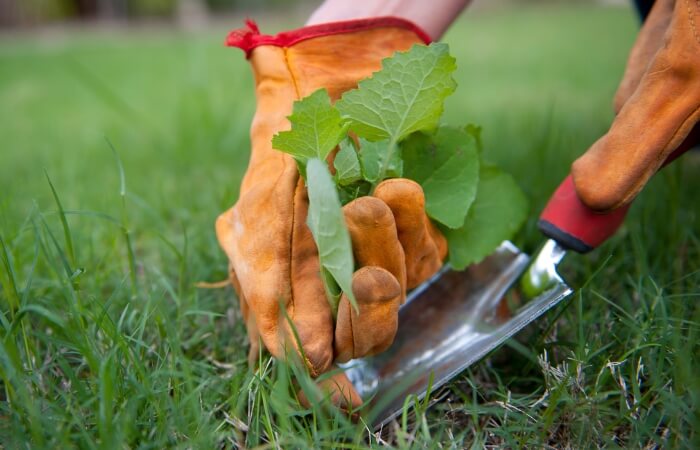
However, you can’t pull off the leaves of the weeds and think that will kill the plant. Instead, you must remove every part of the weed from the foliage to the entire root system to prevent regrowth.
Even a 1/4-inch segment of some weed roots can regrow into a mature weed in a matter of weeks.
Contact Herbicides
Contact herbicides will kill off any plant tissue it comes in contact with.
Most homeowners spray contact herbicides on broadleaf weeds. After application, the weed will quickly wilt, sometimes in only an hour or two, and dry up for easy removal.
The bad news is that contact herbicides won’t soak into the roots or any part of the plant under the soil, leading to top regrowth of the weed over time.
If you are consistent with respraying the new weed growth, as soon as it appears, you will eventually weaken the plant’s root system, and it will die off for good.
Systemic Herbicides
Systemic herbicides will kill the entire plant structure, but it takes time to work. The herbicide applies to the upper foliage of the weed and will absorb into the plant.
Once inside the plant walls, a systemic herbicide travels throughout the roots and stems, and the entire plant will wilt, brown, and die.
It can take a few days to an entire month to see the results from a systemic herbicide treatment, which isn’t a great method to use if you want instant results.
Do Organic Herbicides Work as Well as Synthetic Herbicides?
Organic herbicides only use natural ingredients in their formulation, while synthetic herbicides are lab-made chemical formulations.
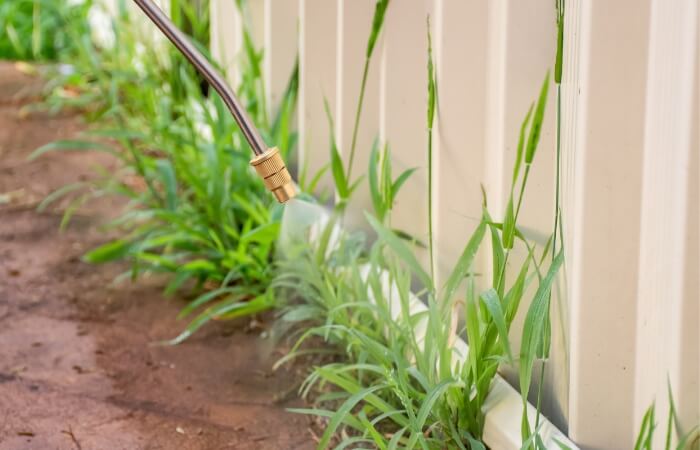
The type of weed killer you select for the job will depend on the kind of weed you are trying to eradicate, the location of the treatment, and the time of year you need to apply it.
Many organic herbicides use common household ingredients to help kill weeds, such as vinegar, baking soda, and lemon juice.
Organic herbicides seem to work well on specific types of weeds such as:
- Crabgrass
- Dandelions
- Ryegrass
Most organic herbicides won’t harm soil structure, as the ingredients break down and won’t accumulate in the soil as synthetic herbicide chemicals can.
Synthetic herbicides can kill a much broader range of weeds very effectively, but over time they can leave deposits in the soil that will cause harm to all plants growing in the area.
Synthetic herbicides can also cause skin, eyes, and lung irritation, and weeds can form a resistance to the chemicals, so it becomes harder to kill them.
Will Vinegar Kill Weeds Permanently?
Vinegar will kill weeds permanently, but it will take patience and persistence in treating the weeds until they die.
Vinegar is the top organic herbicide choice as it contains acetic acid, which will burn the foliage of plants so that the weed will dry out and the above-ground growth will crumble and fall off.
You’ll need to retreat any new growth as soon as you see it appear, and eventually, the vinegar will kill the weeds permanently.
The acid that contacts the soil will degrade quickly, so you don’t have to worry about long-term damage, but the acid will harm your good plants, so you want a sprayer with an accurate nozzle.
Purchase a vinegar product with a high level of acedic acid, as the brands you purchase in a grocery only contain around 5% acetic acid. While a lower acid level will work, you’ll need to apply it more often to see results.
Places like gardening centers and home improvement stores often carry a 20% vinegar concentrate that is much more effective to kill weeds.
Another trick gardeners use to help boost the killing action of the vinegar is to add five or six drops of liquid dish soap to the solution. The dish soap will break down the cuticle, or outer foliage layer, so the acid in the vinegar can penetrate faster to dry out the leaves.
Will Baking Soda Kill Weeds Forever?
Baking soda can kill weeds forever, but you can create a mess of your garden or landscape soil if you misuse it during application.
Sodium is the active ingredient in baking soda, which is toxic to plants. So if you dissolve baking soda in water and spray it on weeds, it will effectively suffocate the plant.
Some gardeners prefer to sprinkle baking soda in its powdered form in a circle around the weeds they want to kill.
It’s best to poke some shallow holes around the weedy area and pour some baking soda into each divot, cover the top with more soil, then gently water the ground to ensure the baking soda begins to dissolve so it can work.
Baking soda is shown to be very effective at killing these weeds:
- Crabgrass
- Liverwort
- Moss
Dissolve 2-4 tablespoons of baking soda in a quart of water, then pour into a spray bottle. Shake the bottle before you apply the liquid to the weeds.
Pro gardeners know that baking soda can improve the growth of flowers and vegetables, so this is an excellent choice for weed kill in those areas.
How To Get Rid Of Weeds Forever
The best way to kill weeds forever is to work to keep weed seeds from landing in your yard and prevent them from germinating, which can feel next to impossible.
- Simple tricks like putting up a solid fence around your property can stop many weed seeds from blowing into your yard.
- Don’t encourage birds or squirrels to your yard with feeders, as they eat all types of seeds and will leave them behind in their droppings.
- Catching and killing any new weed growth is critical, so they die before they mature and set seed or spread through root development.
- Applying a pre-emergent herbicide to weedy areas of your lawn and garden will stop weeds from growing past the germination stage, while regularly applying a post-emergent herbicide of your choice will kill any sneaky weeds fast.
- Pulling weeds from the roots is another way to get rid of weeds forever, but the reality is that you’ll need a multi-pronged approach using all the techniques above.
